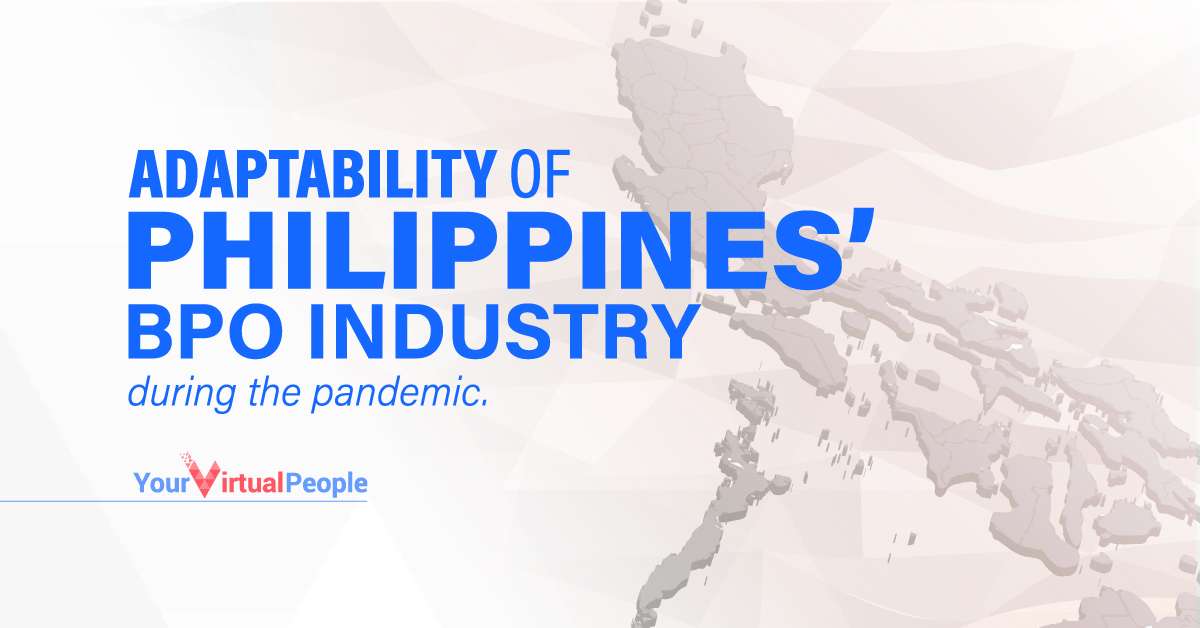In the Philippines, the BPO industry accounts for 10 to 15% of the worldwide BPO industry, with the local BPO sector growing at a compound annual rate of 10% over the last decade. The industry generated $26 billion in 2019. Over 1000 companies employ 1.3 million employees in BPO. In addition, the Philippines have continually rated among the top five global outsourcing locations.
2019 was a good year for BPOs, with plenty of momentum heading into 2020. But due to the pandemic and the lockdowns, it was estimated that about 4.5 million Filipinos had lost their jobs last year, with the unemployment rate at 10.4% – the highest in 15 years. This temporarily puts a massive bump in the industry’s momentum, but the pandemic also became a catalyst in the industry’s revitalisation. With an urgent need to relocate operations to the cloud, we witnessed many BPOs turn to the digital world.
Various experts and organisations provided positive forecasts for the Philippine BPO sector in the following year in late 2019. Of all, no one anticipated the global devastation caused by the COVID-19 epidemic. This caused them to reconsider their predictions and long-term plans. Travel, leisure, and service industries were particularly hit hard. Some industries, on the other hand, were able to get through these sudden shifts by adjusting to the new normal. One of these was the BPO business, which is recognised for its adaptability. Despite facing numerous unique obstacles, the industry was able to weather the initial storm and subsequent setbacks. As we’re already halfway through the year, it’s clear that the BPO industry intends to keep its grip in 2021 and the years to come.
While the worldwide pandemic affected numerous supply chains, it piqued the notion of remote working to the masses. Many businesses implemented new methods that required workers to work from home in order to emphasize their safety while others offered a hybrid set-up. Some have even begun to contemplate embracing this remote work style on a long-term basis.
One of the most important things businesses learnt in 2020 was the feasibility of remote work. Employees were allowed to work at home as part of the new normal in order to emphasize their safety. Those who now work from home have updated internet access and other solutions put in place by their employer. To maintain constant contact with customers and their team, the usage of, collaboration technologies such as Skype and WhatsApp has grown with others such as Zoom and Google Hangouts.
The COVID pandemic also highlighted the significance of having a solid business continuity strategy for 2020 was a year in which companies had to adjust to quickly changing circumstances. The outsourcing sector demonstrated how it was able to survive in the face of several unanticipated obstacles. Business Continuity Plans increasingly prioritise problems such as data security and staff safety.
Even after the pandemic has passed, some of the new standards that have been implemented, will define the Philippine BPO sector for years to come while also addressing certain new issues. Some will undoubtedly be establishing a remote work set-up while providing great service. However, as the industry has demonstrated time and again, it is always ready to adapt and remain at the forefront of the ever-changing business climate.
Interested in Outsourcing and building a great team? Call us at 1300 800 965 (AU) /+1 888 488 4069 (US & Canada) or email us at [email protected].
Let’s help you gain back the time, freedom and peace of mind!



